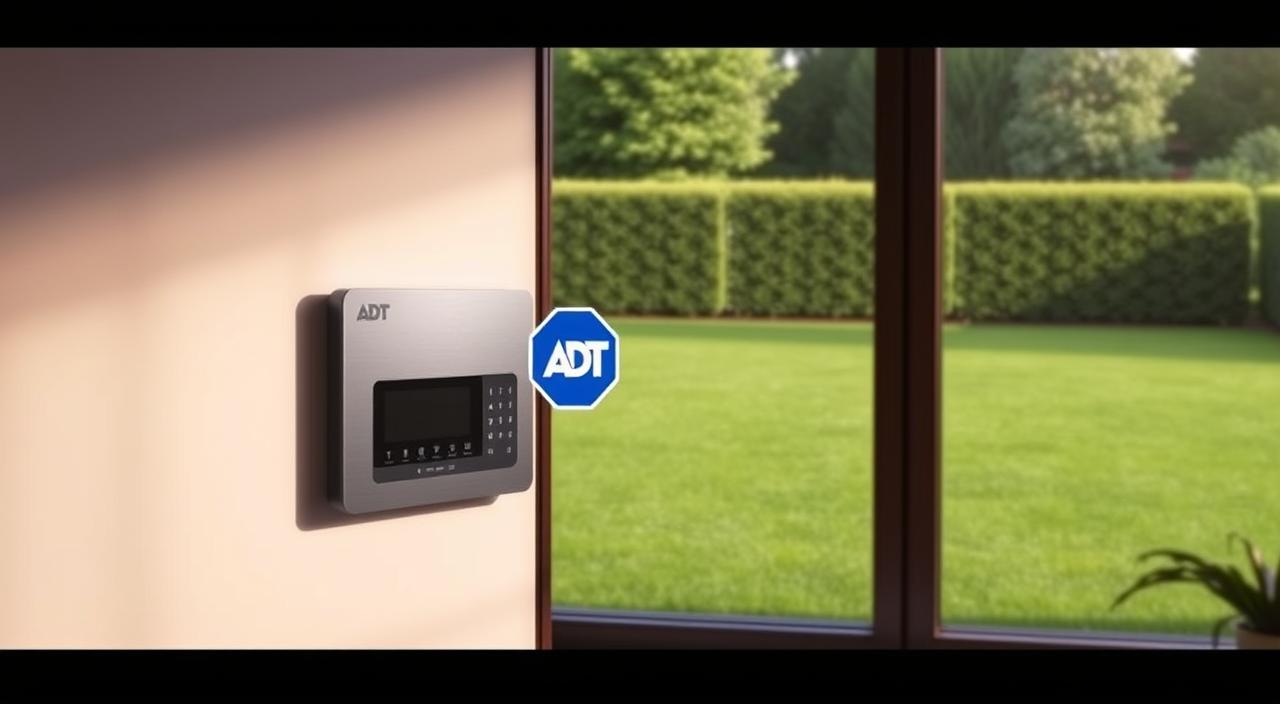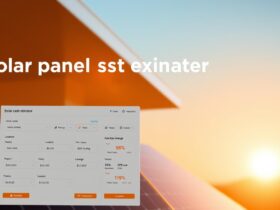The world is moving towards renewable energy storage solutions. Understanding solar battery storage is key. These systems let homeowners save extra energy from solar panels. This way, they use less grid power and have backup power when needed.
Choosing the right home solar battery can be tough. You need to think about your energy needs, budget, and if it works with your solar panels. This helps you get the most out of renewable energy storage.
Key Takeaways
- Understand your energy needs to choose the right solar battery storage.
- Consider compatibility with your existing solar panel system.
- Evaluate the cost and possible savings of different solar battery storage options.
- Research different brands and their reputations.
- Assess the scalability of the solar battery storage system.
Introduction to Solar Battery Storage Options
As we move towards renewable energy, knowing about solar battery storage is key. It’s not just an extra part of your solar system. It’s essential for making your energy use more efficient and reliable.
Energy storage solutions are important because they save extra energy from your solar panels. This saved energy is used at night or on cloudy days. This way, your place stays powered, making the most of your solar power systems.
When looking at solar battery storage options, think about the technology, how well it works, and how long it lasts. The right energy storage solution boosts your energy freedom, cuts down your bills, and gives you power when the grid goes down.
It’s important to know the different solar battery storage systems and their pros and cons. Whether you’re starting with a solar system or upgrading, aim to use energy better and help the planet.
Advantages of Solar Battery Storage Systems
Solar battery storage systems bring many benefits to homeowners. They offer a triple win that boosts your solar energy use.
Increased Energy Independence
One big plus of solar battery storage is more energy freedom. It lets you store extra energy from your solar panels. This way, you use less grid power, which saves money and keeps you safe during outages.
For example, a home with solar battery storage can keep lights and appliances on during blackouts. This keeps you comfortable and safe.
Reduced Electricity Bills
Another great benefit is lower electricity bills. By storing energy when it’s cheap and using it when it’s expensive, you save a lot. The benefits of solar battery storage show that you can cut your utility bills by a lot each year.
Backup Power Supply
Solar battery storage also gives you a reliable backup power. When the power goes out, it kicks in to keep your home running. This is super helpful in areas with frequent power cuts or natural disasters.
Knowing your home is safe from power outages brings peace of mind. It’s a big plus.
In summary, solar battery storage systems are a win-win. They boost energy freedom, cut down on bills, and ensure a steady power supply. They’re a smart choice for anyone wanting to get the most from their solar energy.
How Solar Battery Storage Works
It’s key to know how solar battery storage works to get the most from your solar system. These systems store extra energy made by your solar panels during the day. This way, you can use it when you need it most.
Storing Energy from Solar Panels
Your solar panels make electricity from sunlight. This electricity goes to a charge controller. It controls how much energy goes to your battery storage system.
The stored energy stays in the batteries until you need it. This could be at night or on cloudy days.
Efficient energy storage is vital for getting the most from your solar panels. Storing extra energy means you use less from the grid. This can lower your electricity bills.
Inverter and System Integration
An inverter system is key in linking your solar battery storage with your solar panels. The inverter changes DC power from the batteries to AC power. This power is what you use in your home.
This integration makes sure you always have power. Whether it’s from your solar panels or stored energy, it’s always there.
The inverter also lets you control your energy use better. You can monitor your energy production and consumption in real-time. This helps you use your energy more wisely.
Learning about solar battery storage helps you make smart choices for your home solar system. It’s about understanding how to store energy and how systems work together.
Types of Solar Battery Technologies

Different solar battery technologies meet various needs. It’s key to know their features. The right choice impacts efficiency, cost, and fit for a solar system.
Lead-acid batteries and lithium-ion batteries are common. Each has its own strengths and weaknesses.
Lead-Acid Batteries are old but reliable. They’re cheap upfront but don’t last as long. They also can’t handle as much charge.
Lithium-Ion Batteries are newer and better. They’re efficient, last longer, and can handle more charge. They’re good for many uses, from homes to businesses.
Newer options like saltwater batteries are also coming up. They’re seen as eco-friendly and might perform better.
Here’s a quick look at these technologies:
- Lead-Acid Batteries: Reliable and cheap, but not as long-lasting or deep-discharge capable.
- Lithium-Ion Batteries: Efficient, long-lasting, and high-performance, but cost more at first.
- Saltwater Batteries: New and eco-friendly, with promising performance.
Knowing these differences helps pick the best solar battery for your needs.
Lithium-Ion Batteries: Pros and Cons
Lithium-ion batteries are top picks for solar battery storage. They offer a great mix of efficiency and long life. But, like any tech, they have their downsides too.
High Efficiency and Lifespan
Lithium-ion batteries are known for their high efficiency and long lifespan. They store a lot of energy for their size and weight. They also charge and discharge well, wasting less energy.
They can last 10 to 15 years, depending on the brand and how they’re used.
The benefits of lithium-ion batteries include:
- High energy density
- Long cycle life
- Low self-discharge rate
- Relatively low maintenance
For more details on lithium-ion batteries, check out SolarReviews. They offer in-depth info on their performance and energy storage.
Cost Considerations
Lithium-ion batteries are pricier upfront than some other types. This can be a hurdle for some. But, it’s key to think about the long-term savings and overall cost-effectiveness over time.
Some key cost factors include:
- The initial purchase price
- Installation costs
- Maintenance and replacement costs
- The value of the energy stored and used
To make costs more manageable, many look into government incentives and rebates. These can help lower the initial cost. Plus, the price of lithium-ion batteries has been dropping, making them more affordable.
Lead-Acid Batteries: An Older Technology
Exploring solar battery storage, you might find lead-acid batteries interesting. They’re an older tech but are not outdated. Lead-acid batteries have been a key player in energy storage for years.
Lead-acid batteries are affordable, which makes them great for budget-conscious homeowners. They also have a strong recycling system. This makes them cost-effective and good for the environment.
Benefits of Lead-Acid Batteries
One big benefit of lead-acid batteries is how recyclable they are. They’re recycled more than many other products. This cuts down on waste and saves raw materials for new batteries.
They’re also simple to make and fix. Their long history has made them cheaper to produce and maintain. This makes them even more appealing.
Limitations Compared to Lithium-Ion
Lead-acid batteries have their perks, but they also have downsides. They don’t last as long and aren’t as efficient as lithium-ion batteries. They need regular care to last longer.
They’re also heavier and hold less energy than lithium-ion batteries. This makes them less ideal for places where space and weight matter. Yet, they’re a good choice for those who prioritize cost.
Saltwater Batteries: An Emerging Alternative
Saltwater batteries are a new solar battery technology. They are known for their environmental benefits and special performance.
Saltwater batteries, also called sodium-ion batteries, use saltwater as their electrolyte. This makes them a more sustainable choice than traditional batteries. They are getting attention for their eco-friendly profile and less environmental impact.
Environmental Benefits
Saltwater batteries are good for the environment. They are made from common, safe materials and can be recycled. This means they have a lower ecological impact than other batteries.
For more info on saltwater batteries, check out EnergySage.
- Made from abundant materials
- Non-toxic
- Recyclable
Performance Characteristics
Saltwater batteries also have great performance. They are a stable and reliable energy storage source for solar systems. Their key features are:
- High discharge capacity
- Long cycle life
- Good thermal stability
The mix of environmental benefits and performance makes saltwater batteries appealing. As technology improves, we’ll see better efficiency and cost in these batteries.
Key Features to Consider in a Solar Battery
When picking a solar battery, look at several important features. These features affect how well the battery works and if it fits your energy needs.
The capacity of a solar battery shows how much energy it can hold. It’s measured in kilowatt-hours (kWh). A bigger capacity means more energy for later use, which is great for homes that use a lot of energy.
Power is how fast a solar battery can give out energy. It’s measured in kilowatts (kW). You need a battery with enough power to handle your home’s peak energy needs.
Efficiency is key because it shows how well a solar battery stores and uses energy. A higher efficiency means less energy is lost when charging and using the battery.
The lifespan of a solar battery is how long it lasts. It’s usually measured in cycles or years. A longer lifespan means you won’t have to replace it as often, saving you money in the long run.
| Feature | Description | Importance |
|---|---|---|
| Capacity | Energy storage capability | High |
| Power | Rate of energy supply | High |
| Efficiency | Effectiveness in storing and discharging energy | High |
| Lifespan | Durability and longevity | High |
By looking at these key features, you can choose a solar battery that fits your needs. This way, you get the most value for your money.
Choosing the Right Capacity for Your Needs
To make sure your solar battery storage fits your energy needs, you must first understand your usage patterns. Picking the right solar battery capacity is key to achieving energy independence and getting the most from your solar system.
Energy Usage Assessment
Start by figuring out how much energy you use each day. Look at when you use the most energy. This helps you see how much battery capacity you need.
Knowing your energy usage helps you pick the right battery. For example, if you use a lot of energy at night, you’ll need a battery that can store enough energy from the day.
| Energy Usage Patterns | Daily Energy Consumption | Recommended Battery Capacity |
|---|---|---|
| Low (e.g., 10 kWh/day) | 10 kWh | 5-7 kWh |
| Medium (e.g., 20 kWh/day) | 20 kWh | 10-14 kWh |
| High (e.g., 30 kWh/day) | 30 kWh | 15-21 kWh |
Future Expansion
Think about your future energy needs when picking a solar battery. If you expect to use more energy or add more solar panels, choose a battery that can handle it.
Planning for the future helps you avoid expensive upgrades later. By picking a battery with more capacity than you need now, your system can grow with you.
In conclusion, picking the right solar battery capacity is all about understanding your current and future energy use. This way, you can enjoy energy independence, optimize your solar system, and save money on your energy bills in the long run.
The Role of Inverters in Battery Storage Systems

Understanding inverters is key to making your solar energy system better. Inverters manage energy flow between solar panels, batteries, and the grid. They ensure you get reliable and efficient energy.
In a solar system, inverters turn DC power from solar panels into AC power for homes and businesses. They also control battery charging and discharging. This way, energy is stored when it’s available and used when needed.
The success of an energy management system depends on the inverter’s skill in distributing energy. Modern inverters watch energy use in real-time. They adjust to save energy and cut waste. It’s important to choose the right inverter for your solar battery storage needs.
Inverters also give backup power during outages. This makes your energy system more reliable. Knowing what your inverter can do helps you value its role in your solar battery storage system.
In summary, inverters are essential for solar energy systems with batteries. They manage energy, improve efficiency, and offer backup power. This makes them vital for anyone wanting to get the most from their solar investment.
Cost Analysis of Solar Battery Storage Options
The cost of solar battery storage is complex. It involves the initial investment and long-term savings. Homeowners need to balance these factors when deciding.
Initial Investment vs. Long-Term Savings
The cost of solar battery storage is high at first. This includes the price of batteries, installation, and connecting them to solar panels. But, long-term savings on electricity bills can make up for this.
A report by the National Renewable Energy Laboratory shows that solar battery storage is getting more affordable. This is because technology is improving and costs are dropping. You can read more about it here: the economic viability of solar battery.
Studies show that solar battery storage can cut electricity bills by up to 50%. This is because you can store energy for later use. This reduces your need for grid power.
Government Incentives and Rebates
Government incentives and rebates make solar battery storage cheaper. Federal and state-level incentives can lower the initial cost. For example, the federal solar Investment Tax Credit (ITC) can cover up to 26% of the system’s cost.
Experts say government policies and incentives are key to using solar battery storage. It’s important to know about these incentives and how they affect the cost.
“The economic benefits of solar battery storage are becoming increasingly evident as technology improves and costs decline.”
In summary, solar battery storage may seem expensive at first. But, long-term savings and government incentives make it worth considering. It’s vital to do a detailed cost analysis to see if it’s right for you.
Top Solar Battery Brands in the Market

Today, Tesla, LG Chem, and Sonnen are leading the way in solar battery technology. They offer innovative solutions for your energy needs.
These brands are at the forefront of the solar battery storage market. They provide a variety of products to suit different needs and preferences.
Tesla Powerwall
Tesla Powerwall is a well-known name in solar battery storage. It’s celebrated for its high efficiency and seamless integration with solar panels.
It offers many benefits, like energy independence and backup power during power outages. Its sleek design and compact size make it a favorite among homeowners.
LG Chem RESU
LG Chem RESU is highly respected for its high-quality cells and robust performance. It’s designed for reliable energy storage in homes and businesses.
The LG Chem RESU battery is known for its scalability and flexibility. It lets users increase their energy storage as needed.
Sonnen Eco
Sonnen Eco is a premium solar battery solution with advanced energy management features. It’s made to optimize energy use and provide backup during grid outages.
The Sonnen Eco battery has an intelligent energy management system. This system allows for real-time monitoring and control of energy use.
When picking a solar battery, it’s key to look at what top brands like Tesla, LG Chem, and Sonnen offer. Knowing their products helps you choose the right one for your energy needs.
Installation Considerations for Battery Systems
Setting up solar battery storage systems needs careful thought about technical and legal aspects. It’s key to install them right for safety and efficiency.
Finding a Qualified Installer
Finding a qualified installer is a big deal. They know how to set up your system safely and right. Look for certifications and check their past work to make sure they’re good.
Permitting and Local Regulations
It’s also important to know the permitting and local regulations for solar battery setups. Rules vary by area, so knowing yours is a must. Your installer should know these rules and help you get the right permits.
Working with an installer who knows local codes is vital. They should also help with any needed inspections or certifications after setup.
By choosing a skilled installer and understanding local rules, you’ll get a solar battery system that works well and safely.
Maintenance and Care for Solar Batteries

Keeping your solar battery in top shape is key. It affects how well it works and how long it lasts.
It’s important to check your solar battery’s charge often. This lets you know if it’s working right and spot problems early.
Key maintenance tasks include:
- Regularly checking the battery’s state of charge and voltage.
- Ensuring the battery terminals are clean and free from corrosion.
- Keeping the battery at the appropriate temperature.
Good care goes beyond just maintenance. It’s about creating a good environment for your battery. For example, lithium-ion batteries, used in many solar systems, can only handle so many charge cycles. Knowing and managing these cycles can make your battery last longer.
The lifespan of a solar battery can be influenced by various factors including depth of discharge, charging cycles, and operating temperature.
Knowing how different solar batteries need care and how long they last can help you choose the right one.
| Battery Type | Maintenance Needs | Average Lifespan |
|---|---|---|
| Lithium-Ion | Low | 10-15 years |
| Lead-Acid | Moderate | 5-10 years |
| Saltwater | Low | 10-15 years |
In short, taking care of your solar battery is essential. By knowing what your battery needs and following the right care steps, you can make sure your solar system works well for a long time.
Common Misconceptions About Solar Batteries
Many myths surround solar batteries, making it hard to know the truth. As the solar industry grows, it’s key to clear up these misconceptions. This helps us understand solar battery storage better.
Some think solar batteries are not efficient and can’t store enough energy. But, modern solar batteries have improved a lot. Some lithium-ion batteries now have efficiencies over 90%. This means they waste less energy, making your solar panels more effective.
Another myth is that solar batteries don’t last long. While older batteries had short lifespans, today’s solar batteries are built to last. For instance, Tesla’s Powerwall comes with a 15-year warranty. Some lithium-ion batteries can even last longer with the right care.
| Myth | Reality |
|---|---|
| Solar batteries are too expensive. | Though they cost a lot at first, you can save money on electricity bills and get government help. |
| Solar batteries are inefficient. | Modern solar batteries, like lithium-ion, are very efficient, often over 90%. |
| Solar batteries have a short lifespan. | Many solar batteries are made to last 10-15 years or more, with long warranties from some makers. |
Knowing the truth about these myths helps homeowners make better choices. As solar battery tech keeps improving, they’ll become even more appealing for using solar energy.
Future Trends in Solar Battery Technology

The solar battery world is on the verge of a big change. This is thanks to new tech and what people want. Two main areas will lead the way: better energy storage and working with smart homes.
Advancements in Energy Density
Improving energy density is a big deal in solar batteries. It means storing more energy in a smaller, lighter package. Advancements in energy density come from new battery chemistry and designs.
Solid-state batteries are a new hope. They pack more energy and are safer than old lithium-ion batteries. As research goes on, we’ll see these changes in solar batteries that are more efficient and smaller.
Integration with Smart Home Systems
Another big trend is solar batteries working with smart home systems. This lets homeowners use energy better, saving on bills. Smart homes adjust energy use when it’s cheapest or most available.
This combo also helps with predictive maintenance. It spots problems early, saving on repairs. As smart home tech grows, it will be key in managing home energy.
Conclusion: Choosing the Best Solar Battery Storage for You
Choosing the right solar battery storage is key to using more renewable energy. Knowing how much energy you use and looking at capacity, power, efficiency, and lifespan helps. This way, you can pick the best home solar energy system for you.
The best solar battery for you depends on your energy needs and budget. Different types like lithium-ion, lead-acid, and saltwater batteries have their own pros and cons. Think about your current energy use and if you might need more in the future to find the best fit.
Getting the right solar battery storage means more energy freedom, lower bills, and a steady power backup. As more people want clean energy, keeping up with solar battery tech is important. This helps you get the most out of your solar energy system at home.











Leave a Reply